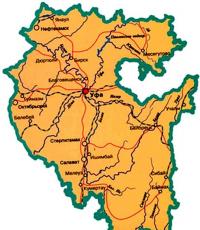Scotland's referendum to leave the UK. Scotland is ready to resume the fight for secession from the UK
When Scotland voted confidently to remain part of the United Kingdom two years ago, naive minds thought independence was off the agenda. But Canadians are well aware that it is a rule of thumb for separatist movements to repeat their attempts to wear down those who oppose them as often as necessary. Separatists only need to win once, while their opponents have to win every time.
Nicola Storjeon understands this dynamic, she has announced the second phase of her Brexit plans, hatched by her Scottish National Party. As First Minister of Scotland, she told a party conference that she was ready to introduce a bill that would create conditions for a second referendum to be held in the next two years. It is no coincidence that these dates coincide with the planned negotiations of Britain on leaving the European Union.
The British vote for Brexit means that "there is one of those specific scenarios in front of Scotland, where the government says that the Scottish Parliament has the right to hold a referendum on independence," Storgeon said. “There are unacceptable risks to our democratic, economic and social interests, as well as the rights of the Scottish Parliament, which must have its say,” she concluded.
If the British voters voted to leave the EU, the vast majority of the people of Scotland voted to stay in it. This part of the United Kingdom has no choice but self-determination, only as an independent state of Scotland can remain in the European Union, retaining all the benefits that open borders and a market from 28 countries bring.
However, secession from the UK will not be as easy as it seems to the Scottish nationalists. The right to call a referendum belongs to London, and the first plebiscite was held only because the Prime Minister David Cameron agreed to it. There is no guarantee that his successor Theresa May will be just as loyal, especially considering that the results of the first referendum literally hung in the balance in the last minutes of the vote.
Storjeon could hold a "consultative referendum" in the hope of winning the support of the vast majority of citizens "over the head" May. The results of such a referendum would have no official status, but if May ignored them, the Scots would feel offended and separatist sentiment would rise. Storjeon would like this to happen, she has already noted that the discontent of the Scots could be softened by "significant additional powers of the Scottish Parliament".
Yes, just as Quebec is using the threat of secession from Canada to shake Ottawa out of its habitual concessions, the Scottish National Party is using the threat as an efficient means of gaining maximum power for the Scottish legislators sitting in Edinburgh. The ideal results would be those that would fit into the invented René Levecom* the "sovereignty-association" formula, according to which Scotland gets all the benefits of independence without experiencing the discord that secession brings.
Avoiding these discords is important because there is no guarantee that the second referendum will be more successful ( for supporters of secession - ed.) than the first. During the preparation and conduct of the 2014 referendum, it was proclaimed that Scotland's share in the oil reserves of the North Sea would help overcome any financial difficulties when access to the mother's wallet ceased. But oil prices have fallen, and no one knows when they will rise again, if ever. Usually they grow, this happens over time, but the formula "over time" is not suitable for governing the country.
Scotland is adopting the same method that Quebec has long used with great success. She makes demands and forces London to respond to them.
Storjeon said that Scotland would make constructive proposals, but "if it turns out that only independence can protect the interests of Scotland", she will hold a new referendum on how the results of Brexit will be implemented.
London responded to Storgeon's threats. May appears to be a tougher politician than Cameron, she has already stated that there will be no revision of the decision to leave the EU. This gave rise to discussions about hard Brexit and soft Brexit scenarios, which differ in that in the second case, Britain can leave ( EU - ed.), retaining all trade relations and prerogatives. While Britain is debating the most profitable terms his departure, Storjeon will pressure May to do the same for Scotland.
For Storjeon and her fellow nationalists, uncertainty is key. It allows for threats and demands for special treatment just as London is considering the details of Brexit. The more their campaign shakes England, the more more likely that weary voters will decide it's time to pack their bags and leave. This is exactly what Storgeon and his Separatists are hoping for.
*Rene Levesque (Rene Levesque, 1922-1987) - Quebec journalist, statesman and politician, founder of the separatist Party of QuebecoisPQ, 23rd Premier of the Province of Quebec (1976-1985). A staunch supporter of the state sovereignty of Quebec. During his reign, the first independence referendum since the formation of the Canadian Confederation (1980) was held in Quebec, 40% of the province's residents voted for secession.
Translation by Stanislav Varykhanov.
Recall that the first referendum took place in 2014. On it, 55 percent of the Scots were in favor of staying in the United Kingdom.
But then Brexit happened. This event changed the situation, as stated by the leadership of the ruling Scottish National Party in Edinburgh. Party leader Sturgeon also added:
"Next week I will seek permission from the Scottish Parliament to pass legislation to hold an independence referendum."
According to the first minister of Scotland, by this period the British government will decide on the terms of the agreement with the European Union, which will give arguments for or against for the Scots. By the way, the UK will leave the EU in March 2019.
Chain reaction
Draws on the fact that
on the eve of the referendum, Edinburgh warned London about a second attempt to "divorce" if the UK leaves the European Union
However, this did not stop London, so Scotland reserves the right to self-determination.
What consequences will follow the decision and the possible withdrawal of Scotland from the UK is now rather difficult to say. But the potential here is quite dangerous.
A number of European countries have a situation similar to Great Britain and Scotland. Therefore, if Scotland manages to secede from the kingdom, this will stimulate the flywheel of centrifugal processes in many EU countries.
So, Spain will not stand aside, where the question of the future of Catalonia and the Basque Country as part of one country is acute. Another European country - Belgium - has its own "Scotland" - Flanders. The mood of the local population is similar to the Scots. In general, Europe can fragment quite strongly.
Can Scotland be admitted to the EU?
Despite the fact that the Scots want to secede from the UK and join the EU as a separate state, they are unlikely to succeed. The same Spain and Belgium will be the first to vote against Scotland. And this is understandable, because these countries are afraid that the Basques and Catalans will follow the Scots. And neither Spain nor Belgium needs this, and Brussels is unlikely to be delighted with such new EU members. After all, the emergence of a new member state can quite significantly destabilize the situation within the European community, which is already “bursting at the seams”. By the way, Madrid has already stated that it is against the fact that the Scots were accepted into the European Union as a separate state.
By the way, the exit of Scotland from the UK may provoke the beginning of another similar process inside the Foggy Albion. It's about Northern Ireland. But even if it (Northern Ireland) remains part of England, the Spaniards will have to apply for visas to get from Northern Ireland to independent Ireland, as they will have to cross the border between the EU and the rest of the world.
In addition, one should not forget about such an "extinct volcano" as the Irish Republican Army (IRA). Recall that the main goal of the Irish paramilitary group is to achieve complete independence of Northern Ireland from the United Kingdom. And it is not a fact that after the separation of Scotland from Foggy Albion, the IRA will remain idle, forgetting about its purpose.
London's reaction
London believes that the Scots have already decided in the 2014 referendum and is not very inclined to approve a new plebiscite.
At the same time, the leadership of Foggy Albion believes that a referendum on Scottish independence could lead to uncertainty in the economy.
“A new referendum will be divisive and will lead to huge uncertainty in the economy at its worst. The majority of the people in Scotland do not want a second vote on independence. Less than two years ago, the people of Scotland voted decisively to remain part of the UK in a referendum that the Scottish government has defined as a "once-in-a-generation" vote," Prime Minister Theresa May's spokeswoman said in a statement.
The announcement came immediately after Scottish First Minister Nicola Sturgeon announced the possibility of a second referendum on Scotland's secession from the United Kingdom.
However, London's decision to leave the EU does not sit well with many Scots who would like to stay in the EU. Especially since
shortly before London's decision on Brexit, Edinburgh asked to consider the option of keeping Scotland part of the EU market
However, it was refused.
And now the Scots are forced to choose between a "hard Brexit" as part of the UK and sovereign navigation in a new capacity for themselves - an independent state.
The initiator of the vote for holding a second referendum was the Scottish National Party. Its leader, First Minister of Scotland Nicola Sturgeon, intended to hold a plebiscite before the end of the Brexit procedure, from autumn 2018 to spring 2019. However, British Prime Minister Theresa May besieged her Scottish counterpart.
“Now we have to work together, not separate. We must work together to get good terms for Scotland, good terms for Great Britain. And that's my job as prime minister. So I'm telling the Scottish National Party that now is not the time," May said in an interview with Sky News.
- British Prime Minister Theresa May
- Reuters
In the end, Sturgeon agreed that a referendum should be held after Brexit to assess the conditions for the UK to leave the EU.
In a vicious circle
Meanwhile, Labor MP Steve McCabe told RT that London should allow Edinburgh to hold an independence referendum if the Scots so desire it. However, Scotland cannot be allowed to thwart Brexit.
“I think it would be better for Scotland to remain part of the UK. But if the Scots are determined to hold a secession referendum, then they certainly should be allowed to do so. However, this cannot be allowed to undermine the process of the UK leaving the EU and thus affect the situation in the country as a whole, ”McCabe said in an interview with RT.
According to him, the proposed referendum dates are in the interests of the Scottish National Party alone, and for Labor, the interests of the entire people of Scotland come first.
“If he (people. — RT) wants to hold another referendum - please! But we can't let it turn into vicious circle in which members of the Scottish National Party, dissatisfied with the results of the previous vote, would arrange a new one every ten years. This road leads to a dead end, ”concluded the British parliamentarian.
Second try
Recall that the first referendum on the exit of Scotland from the UK was held in 2014. Then 55% of the Scots voted against secession. The reason for the second plebiscite was Brexit: 62% of Scottish voters disagreed with the UK's exit from the EU. Scottish nationalists did not fail to take advantage of this.
“In Scotland, centrifugal nationalist forces have always been strong,” Stanislav Byshok, a political analyst at the CIS-EMO international monitoring organization, said in an interview with RT. Now the Nationalist Party is in power. She won by putting forward separatist slogans, and now she is going the same way, talking about the need for a second referendum.”
However, according to the expert, for Queen Elizabeth II and Theresa May, the issue of secession of Scotland is not paramount. Now official London is most concerned about Brexit negotiations.
In the general queue
In the European Union, no one is particularly looking forward to Scotland. In the event of separation from the UK, the Scots will have to “stand in the general queue” of states wishing to join the EU, such a statement was made by European Commission spokesman Margaritis Shinas. The EU has a lot of problems without Scotland.
“The decision itself does not mean anything yet. It suggests that the Scots plan to stay in the EU, ”Alexey Sindeev, chief researcher at the Institute of Europe of the Russian Academy of Sciences, explained in an interview with RT. - But for European Union this issue is not currently relevant. The EU must now resolve the issue of the UK's exit: how this exit will be carried out, how relations between the EU and the UK will be built after its exit. And in this regard, the Scottish issue is not promising. I think official Brussels will even slow down the Scots.”
Time will tell
There is no unanimity among the Scots on the issue of secession from Great Britain. According to Stanislav Byshka, polls show that now even fewer residents of a small but proud kingdom want separation from their “big brother” than during the first referendum.

- Nicola Sturgeon and Theresa May
- Reuters
“If the economic situation worsens after the UK exit, then the number of supporters of secession will grow,” Byshok said. “If things continue as they are now, there will be nowhere for the growth of separatism to come from.”
May survives second no-confidence vote
After the failure of the vote in the British Parliament on an agreement to withdraw the UK from the EU, MPs held a vote of no confidence in the government of Theresa May. The Prime Minister won thanks to the support of Conservative MPs and allies from the Democratic Unionist Party.

Crushing Brexit Defeat in British Parliament
The lower house of the British Parliament on January 15 rejected the agreement on the British exit from the European Union. 432 deputies spoke out against the document, 202 supported it. At least 320 votes were required to pass the agreement. Within three days, London must submit an alternative Brexit plan.

Brexit: Britain's divorce from the EU is difficult
Conservatives fail to pass no-confidence vote against Theresa May
A number of British MPs from the Conservative Party initiated a vote of their faction on a vote of no confidence in Prime Minister Theresa May. The reason was the Brexit plan agreed upon by May with the EU, which, according to the conservatives, is unfavorable for the UK. May retained the post of prime minister and moved the parliamentary vote on Brexit, previously scheduled for December 11, to mid-January.

Brexit: Britain's divorce from the EU is difficult
Brussels and London agree on Britain's exit from the EU
On November 25, at an extraordinary summit in Brussels, the heads of state and government of 27 EU countries approved an agreement with the UK on Brexit. The leaders of all European countries supported the 585-page agreement on Britain's exit from the EU. European Commission President Jean-Claude Juncker described the deal as "the best possible" and called it a fair compromise.

Brexit: Britain's divorce from the EU is difficult
May for soft Brexit
Theresa May, who took over as British prime minister after the resignation of David Cameron, who opposed the exit of the country from the EU, supports the soft Brexit model. In particular, after the government agreed on a collective position on July 6, 2018, May announced that the UK is in favor of creating a free trade area with the EU after Brexit.

Brexit: Britain's divorce from the EU is difficult
Dissenters resigned.
First, David Davis, Minister for the UK's exit from the EU, resigned. Then - the Minister for Foreign Affairs, supporter of "Brexit" Boris Johnson. They thwarted Prime Minister Theresa May's attempt to rally her cabinet to a soft exit option. In turn, Johnson said that the implementation of Brexit requires the prime minister to take a tougher stance towards the EU.

Brexit: Britain's divorce from the EU is difficult
Foreign Ministry headed by anti-Brexit
Jeremy Hunt, who previously held the post of Minister of Health and Social Affairs of the country, has replaced Boris Johnson as UK Foreign Secretary. Unlike Johnson, who advocated a complete "divorce" from the European Union, Hunt was previously known as an opponent of the country's exit from the EU. Davis, also retired, was replaced by Dominic Raab.

Brexit: Britain's divorce from the EU is difficult
What is a soft Brexit
The soft version of Brexit declares the absence of checks on the border between Ireland and Northern Ireland. It is also expected that the EU and the UK will develop a "joint institutional framework" for consistent interpretation of the legal agreements between them. Finally, May's cabinet has approved a principle to avoid customs checks after March 29, 2019 - the entry into force of Brexit.

Brexit: Britain's divorce from the EU is difficult
Brussels welcomes London's decision

Brexit: Britain's divorce from the EU is difficult
Historic decision
The referendum on the UK leaving the European Union took place on June 23, 2016. 51.9 percent of those who voted voted in favor of Brexit. More than 33.5 million Britons took part in the referendum, with a turnout of 72.1 percent. No state has ever left the EU, which was established in 1992.

Brexit: Britain's divorce from the EU is difficult
How did the UK vote on Brexit?
The United Kingdom is made up of England, Scotland, Wales and Northern Ireland. The outcome of voting in them turned out to be heterogeneous. If in England (53.4%) and Wales (52.5%) they voted for leaving the EU, then in Scotland and Northern Ireland the majority was in favor of maintaining the UK's membership in the European Union - 55.8% and 62% of the local population spoke accordingly .

Brexit: Britain's divorce from the EU is difficult
metropolitan view
Greater London was the only one of the nine regions of England to vote in favor of keeping the UK in the EU. 59.9 percent of the referendum participants here were in favor of the UK remaining part of the European Union.

Brexit: Britain's divorce from the EU is difficult
Young Brits against Brexit
75% of Britons aged 18 to 24 who participated in the referendum voted against leaving the EU. But 61% of voters over 65 voted for Brexit. In the age group from 25 to 49, 56% supported maintaining EU membership, while the same percentage of Britons aged 50 to 64, on the contrary, voted for Brexit.
Scottish First Minister Alex Salmond announced the start of expert consultations on holding a referendum on the independence of the region in the fall of 2014 - issues put up for voting, financing of the referendum and the procedure for organizing it will be discussed.
Speaking to members of the local parliament, the head of the Scottish National Party (SNP) Salmond announced what the question that will be offered to the Scots will look like: do you agree that Scotland should be an independent country? So far, only this wording has been put up for discussion, but the debate is around the need to include other options in the ballots, such as voting for the expansion of devolution (autonomous powers) of the region. An Electoral Commission will be created to organize the referendum. The plebiscite, according to rough estimates by British analysts, could cost 10 million pounds.
Presenting plans for a referendum in the Scottish Parliament, Salmond, quite expectedly, addressed the deputies with the thesis that the region, being part of the United Kingdom, is limited in its capabilities. It cannot independently solve unemployment issues by creating jobs, it cannot regulate its social policy or economic growth. "Referendum 2014 years will pass on the same terms as any election in Scotland, to the same standards and with the same guarantees of openness. We will decide our own fate on a very obvious issue," he said.
Salmond insists that with the resources Scotland has, her people can "make her a stronger and more prosperous nation." About subsequent relations with Great Britain in the event of secession, Salmond spoke diplomatically.
"As an independent country, Scotland will become a full and responsible member of the international community, remaining friendly and good relations with our neighbors and other nations of the island, with whom we have a historically close relationship," the SNP leader described the prospects.
Meanwhile, London has previously launched its own consultations on Scottish independence. The British government questions the legitimacy of such a vote, arguing that any plebiscite without its approval will only be advisory, with which official Edinburgh does not agree. Earlier, British Prime Minister David Cameron announced that London is ready to approve the referendum, but only if it passes earlier and if there is no question of expanding devolution in it.





